 W
WMasaharu Anesaki , also known under his pen name "Chōfū Anesaki" , was a leading Japanese intellectual and scholar of the Meiji period. Anesaki is credited as being the father of religious studies in Japan, but also wrote on a variety of subjects including culture, literature, and politics. He was also a member of the International Committee on Intellectual Cooperation of the League of Nations.
 W
WKyūya Fukada was a Japanese writer and mountaineer active during the Shōwa period in Japan.
 W
WSatarō Fukiage was a Japanese rapist and serial killer. He killed at least seven girls. He murdered his first victim in 1906, and killed six girls between 1923 and 1924. He was tried for three out of six cases, but his exact number of victims is unknown.
 W
WKosuke Gomi was the pen-name of Yasusuke Gomi, a Japanese novelist active during the Shōwa period of Japan. He is primarily known for his popular fiction on historical themes.
 W
WJun Henmi , real name Mayumi Shimizu , was a Japanese writer and poet born in Mizuhashi, Toyama Prefecture, Japan. She was known for her works of fiction and nonfiction about people affected by World War II. Henmi was the daughter of Gen'yoshi Kadokawa, founder of publisher Kadokawa Shoten and the older sister of Haruki Kadokawa.
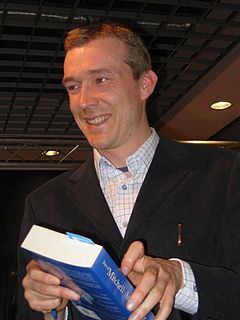 W
WDavid Stephen Mitchell is an English novelist and screenwriter.
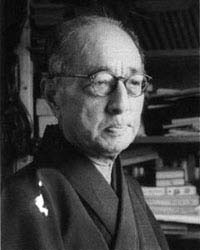 W
WKōnosuke Hinatsu was the pen-name of a Japanese poet known for his romantic and gothic poetry patterned after English literature. His real name was Kunito Higuchi.
 W
WHoshino Tenchi was the pen name a noted poet, educator, calligrapher, and martial arts master in Meiji period Japan. His true name was Hoshino Shinnosuke (星野慎之輔). Hoshino Tenchi was one of the founders of the Bungakukai literary magazine, which was highly influential in the development of modern Japanese literature and Japanese poetry.
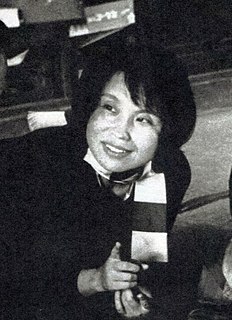 W
WMichiko Ishimure was a Japanese writer and activist.
 W
WAkiyoshi Kitaoka is a Professor of Psychology at the College of Letters, Ritsumeikan University, Kyoto, Japan.
 W
WMarie Kondo , also known as Konmari (こんまり), is a Japanese organizing consultant, author, and TV show host.
 W
WTetsuko Kuroyanagi is a Japanese actress, voice actress, tarento, World Wide Fund for Nature advisor, and Goodwill Ambassador for UNICEF. She is well known for her charitable works, and is considered as one of the first Japanese celebrities who achieved international recognition. In 2006, Donald Richie referred to Kuroyanagi in his book Japanese Portraits: Pictures of Different People as "the most popular and admired woman in Japan."
 W
WToshiyuki Maesaka is a Japanese freelance journalist, a former senior researcher of Mainichi Shimbun Newspaper, and a professor emeritus at Shizuoka Kenritsu University.
 W
WJinzō Matsumura was a Japanese botanist. The standard author abbreviation Matsum. is used to indicate this person as the author when citing a botanical name.
 W
WMiyamoto Musashi , also known as Shinmen Takezō, Miyamoto Bennosuke or, by his Buddhist name, Niten Dōraku, was a Japanese swordsman, philosopher, strategist, writer and rōnin. Musashi, as he was often simply known, became renowned through stories of his unique double-bladed swordsmanship and undefeated record in his 61 duels. He is considered a Kensei, a sword-saint of Japan. He was the founder of the Niten Ichi-ryū school or Nito Ichi-ryū style of swordsmanship, and in his final years authored The Book of Five Rings , and Dokkōdō. Both documents were given to Terao Magonojō, the most important of Musashi's students, seven days before Musashi's death. The Book of Five Rings deals primarily with the character of his Niten Ichi-ryū school in a concrete sense e.g. his own practical martial art and its generic significance; The Path of Aloneness on the other hand, deals with the ideas that lie behind it, as well as his life's philosophy in a few short aphoristic sentences. The Miyamoto Musashi Budokan training centre, located in Ōhara-chō (Mimasaka), Okayama prefecture, Japan was erected to honor his name and legend.
 W
WMorita Sōhei was the pen name of Morita Yonematsu, a Japanese novelist and translator of Western literature active during the late Meiji, Taishō and early Shōwa periods of Japan.
 W
WTakashi Nagai was a Catholic physician specializing in radiology, an author, and a survivor of the atomic bombing of Nagasaki. His subsequent life of prayer and service earned him the affectionate title "saint of Urakami," and he has subsequently been honoured with the title of Servant of God, the first step towards Catholic sainthood.
 W
WShomu Nobori was the pen-name of a noted translator and educator of Russian literature in Taishō and Shōwa period Japan. His real name was Naotaka Nobori . He also served as a special advisor to the Japanese cabinet on Russian and Soviet issues.
 W
WShūmei Ōkawa was a Japanese nationalist, Pan-Asian writer and indicted war criminal. In the prewar period, he was known for his publications on Japanese history, philosophy of religion, Indian philosophy, and colonialism. He is frequently called a "right-wing" writer, although he described himself as anti-capitalist and rejected the label "right-wing".
 W
WSōichi Ōya was a Japanese journalist noted for his research and commentaries on popular culture.
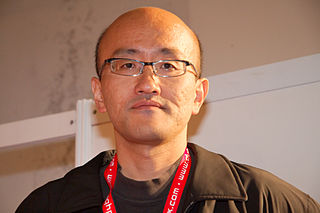 W
WTakamasa Sakurai was a Japanese pop culture and anime expert. Sakurai was a strong proponent for the promotion of Japanese popular culture internationally as a means of cultural exchange and cultural diplomacy. His projects promoted Japanese anime, fashion and music to a global audience. In 2009, Sakurai co-founded the Ministry of Foreign Affairs's "Kawaii Ambassador" program. He also authored several books on the country's aesthetics and pop culture, including "Sekai Kawaii Kakumei" and Anime Bunka Gaiko.
 W
WShunryu Suzuki was a Sōtō Zen monk and teacher who helped popularize Zen Buddhism in the United States, and is renowned for founding the first Zen Buddhist monastery outside Asia. Suzuki founded San Francisco Zen Center which, along with its affiliate temples, comprises one of the most influential Zen organizations in the United States. A book of his teachings, Zen Mind, Beginner's Mind, is one of the most popular books on Zen and Buddhism in the West.
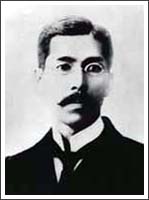 W
WTakayama Chogyū , real name Takayama Rinjirō, was the pen name of a Japanese author and literary critic. He influenced Japanese literature in the late Meiji period with his blend of romantic individualism, concepts of self-realization, aesthetics, and nationalism. However, many of Chogyū's works seem cryptic to readers today, due to the archaic style he employed.
 W
WMichio Takeyama was a Japanese writer, literary critic and scholar of German literature, active in Shōwa period Japan.
 W
WYamamoto Tsunetomo , also read Yamamoto Jōchō, was a samurai of the Saga Domain in Hizen Province under his lord Nabeshima Mitsushige.
 W
WMaki Yūkō , also known as Maki Aritsune, was a Japanese mountain climber.